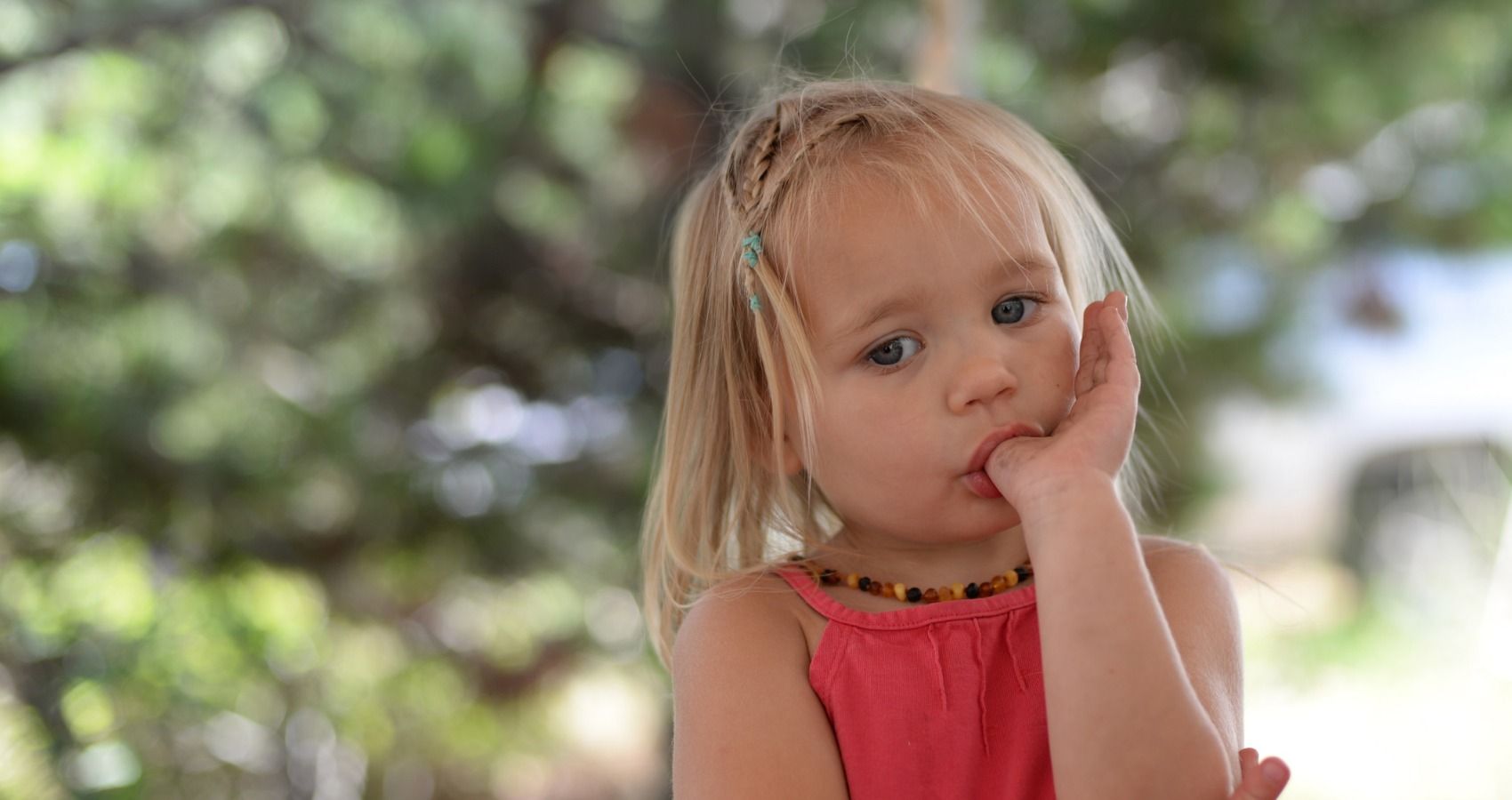Thumb-sucking a common habit that many children develop, often in very early childhood. Babies have natural sucking reflexes, and often suck on their fingers and thumbs when they need to be soothed or to help them fall asleep, as they associate it with sucking on a bottle or nipple. As children get older, thumb-sucking can become a way for them to feel comfort or satisfaction, as those associations linger and it turns into a way for them to feel safe. In early childhood, thumb-sucking usually isn't a cause for concern or something you need to address. But as your child reaches toddlerhood, you may need to address their thumb-sucking and develop a plan to put an end to it.
When it's time to stop thumb-sucking
Most experts agree that in the first few years of life, there's no need to really worry about your toddler's thumb-sucking, as long as their language skills are developing normally. Most children begin to drop the habit naturally at around 5-6 years old.
Once a child's permanent teeth start to come in (which, incidentally, is around the same age), thumb-sucking can begin to affect their palate (roof of the mouth) and impact how your child's teeth line up. It may be a good idea to address the thumb-sucking around age 3, so you have plenty of time to nip the habit in the bud before it potentially affects your child's dental health.
How to stop a child's thumb-sucking habit
For some parents, getting their toddler to stop sucking their thumb is more difficult than transitioning off a bottle or pacifier. After all, you can't just take away their thumbs! But forcing your toddler to stop isn't always the best (or most successful) course of action. Instead, you want to try to gently wean your child off of sucking their thumb. You don't want to turn it into a fight! Start by talking to your child about their thumb-sucking, and identifying their triggers (when they're most likely to engage in the activity). Helping them understand when and why they suck their thumb can help them curb the desire.
Limit the time they can suck their thumb; for example, set some rules like they can only suck their thumb at home, or in their bedroom at nap time or bedtime. If they associate it with falling asleep, make sure they know it's a nap time or bedtime activity only.
If your child tends to suck their thumb when they're bored or idle, like during a program on TV or in the car, give them activities or items to keep their hands busy or hold their attention. Use positive reinforcement when they follow the rules or go a certain length of time without sucking their thumb. Don't get mad at them - remember, this is how they comfort and soothe themselves! And skip those quick fixes like bitter paint on their nails or gloves; they won't curb your toddler's thumb-sucking, and can cause frustration or anxiety, which just increases their desire to suck their thumb.
How to wean your child off of the pacifier
Breaking up with a pacifier is a bit easier (logistically) than stopping a thumb-sucking habit. Like thumb-sucking, most kids will naturally wean off the pacifier by age 4. But if they're still holding tight to their binky, you might need to take matters into your own hands. You could go cold turkey and remove all pacifiers at once, but be prepared for some rough days and nights! You can also try a gradual weaning, where you relegate pacifiers to certain times of the day, or in certain areas of the house only, until they eventually give up using one altogether.
If you want a more structured approach, consider something like the Three-Day Plan. Over the course of three days, you'll explain to your toddler that it's time to say goodbye to some of the "baby" things like pacifiers. Have the same talk with your toddler on days one and two, and then on the final day, remind them that today is the day they get rid of their pacifiers. Gather them all up, then either have your toddler place them in the trash or recycling bin, or have them watch you do it. It's a bit softer approach than cold turkey, but quicker than a gradual weaning.
READ NEXT: Could This Finally Help Your Toddler Get Rid Of Their Pacifier?

